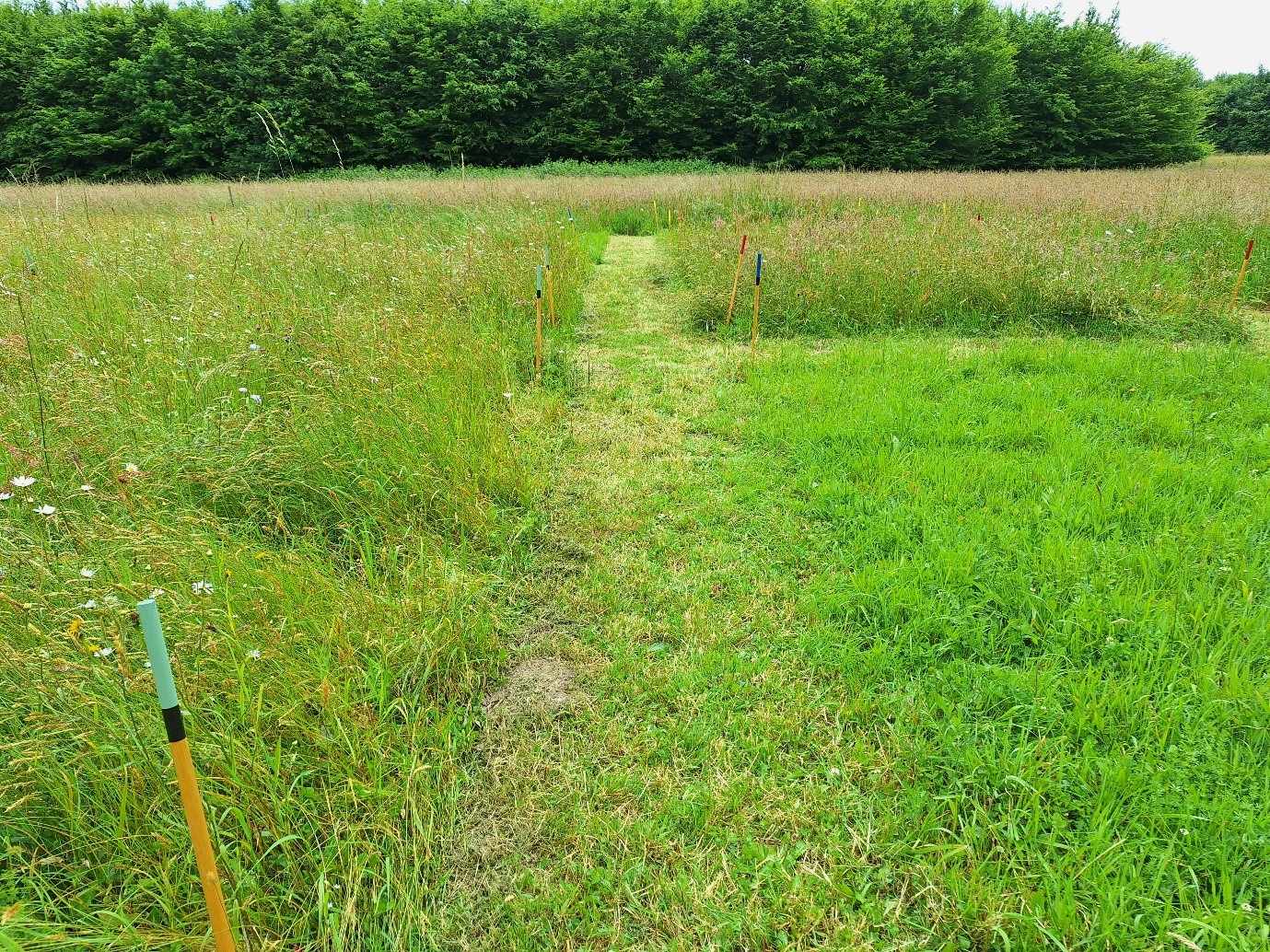Flemish partners of the Interreg EXPBIO project enhanced their expertise in grassland restoration through the Restoring Biodiverse Grasslands: From Science to Practice training in 2024. Organised by Inverde, the course addressed challenges like habitat fragmentation and biodiversity loss, offering practical solutions such as using local seed mixtures. These insights will support efforts to restore grasslands and improve plant biodiversity, aligning with the European Nature Restoration Law.
Between May and September 2024, the Flemish partners of the Interreg EXPBIO (Flemish land agency, Meise Botanic Garden, and the Department of environment and spatial development) participated in a specialized training course titled Restoring Biodiverse Grasslands: From science to practice. Organised by Inverde, this course provided important insights into the restoration of biodiverse grasslands, from field measurements, interpretation of data and formulation of remedial measures.
Grasslands in Flanders are under considerable pressure from decades of agricultural intensification, desiccation, nitrogen deposition and habitat fragmentation. Even in nature reserves, the quality and extent of biodiverse grasslands have deteriorated, and land managers are struggling to achieve successful restoration. The European Nature Restoration Law underscores the urgency of addressing these challenges.
Gaining practical knowledge
Led by grassland restoration experts Dr An De Schrijver and Dr Andreas Demey, the course delved into the latest scientific research and provided participants with a comprehensive understanding of both the theoretical and practical aspects of grassland restoration. Combining lectures, field visits and practical exercises, the course addressed key issues such as:
- What hinders grassland restoration efforts?
- Which grassland types can thrive in specific areas?
- What practical steps can accelerate biodiversity recovery?
One of the highlights of the course was a field visit to the HerBioGras long-term grassland restoration experiment. This research provides real-world data on restoration approaches, showing what works and why. The Flemish partners also analysed soil samples from grasslands, and received expert feedback on how to take soil samples in the pilot plots.

The need for local seeds
Grassland restoration on former agricultural land is often unsuccessful because the desired wild flower species are no longer present in the soil seed bank due to ploughing and fertilisation of the land. In addition, these species often do not reach the newly created areas by natural dispersal because the highly fragmented landscape in Flanders creates migration barriers.
The research carried out in HerBioGras shows that when the soil seed bank is absent and colonisation by seed dispersal is impossible, assisted migration through seed sowing can be a way to increase the success rate of grassland restoration. However, the lack of commercially available local seeds in Flanders makes it impossible to implement this practice in Flanders.
Therefore, development of local seed mixtures in Flanders will help nature managers to achieve their goals for grassland restoration, thus helping them to meet the objectives of the Nature Restoration Law.
Advancing Interreg EXPBIO Goals
This course directly supports the objectives of the Interreg EXPBIO project, which aims to improve plant biodiversity and ecosystem restoration. By strengthening soil seed banks, developing innovative seed mixes and promoting community engagement through citizen science, EXPBIO addresses key challenges in biodiversity conservation.
The expertise gained by the Flemish partners during this training will feed into their ongoing efforts to create local seed mixtures, contributing to the broader goals of the project. With their new skills and insights, they are ready to take the next steps in improving plant biodiversity and restoring grasslands across the North Sea region.
Relevant literature
https://www.inverde.be/opleidingen/herstel-van-biodiverse-graslanden-van-wetenschap-naar-praktijk
Image 1: The HerBioGras grassland restoration experiment